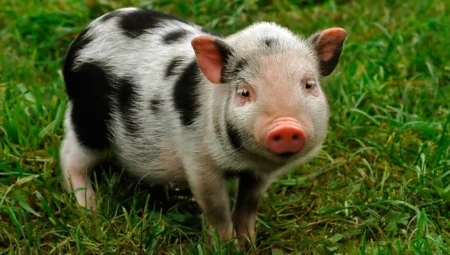The United States is a patchwork of diverse laws and regulations concerning pet ownership. These regulations vary significantly from state to state and even between municipalities within the same state. When it comes to determining which pets are legal or prohibited, it’s crucial for prospective pet owners to understand the specific regulations that govern their area.
Understanding Pet Ownership Laws in the United States
Below is an overview of common pets and their legal status across different states in the U.S.
Dogs and Cats: Dogs and cats are the most common household pets and are generally legal in all states. However, some local ordinances may restrict the number of pets an individual can own or require specific licenses or vaccinations.
Exotic Pets: Exotic pets, which include animals such as certain reptiles, amphibians, birds, and non-native mammals, often have stricter regulations. States like California, for example, have a comprehensive list of prohibited species, including certain types of snakes, ferrets, and large cats like lions and tigers. On the other hand, some states have more lenient laws, allowing ownership of a broader range of exotic pets with the proper permits or licenses.
Ferrets: Ferrets are a unique case as they are illegal in some states, such as California and Hawaii, due to concerns about them establishing feral populations and potential threats to local wildlife. In contrast, many other states allow ferret ownership with appropriate vaccinations and permits.
Reptiles and Amphibians: The legality of keeping reptiles and amphibians varies widely across states. For instance, some states prohibit owning certain venomous snakes or large constrictor snakes, citing public safety concerns. Additionally, endangered species are federally protected, making it illegal to own them without specific permits.
Birds: The regulations surrounding bird ownership also vary. While common domesticated birds like parrots and canaries are generally legal, owning birds of prey or protected species may require special licenses or adherence to federal regulations.
Wildlife: Many states have strict laws regarding the ownership of native wildlife species. It’s often illegal to keep wild animals as pets due to concerns about their welfare, public safety, and the preservation of natural ecosystems.
Exemptions and Permits: In some cases, individuals may obtain special permits or exemptions to legally own restricted animals. These permits often come with specific requirements, including proper housing, veterinary care, and adherence to safety standards.
Local Ordinances: Apart from state laws, many cities and counties have their own ordinances regulating pet ownership. These ordinances can be more stringent than state laws, so it’s essential to research local regulations before acquiring a pet.
Navigating the complex landscape of pet ownership laws in the United States requires diligent research and adherence to specific regulations. Prospective pet owners must consider both state and local laws, as well as any federal regulations, to ensure legal and responsible ownership of their desired pet. Consultation with local animal control authorities or legal professionals knowledgeable in pet ownership laws can provide further guidance in understanding and complying with applicable regulations. Ultimately, responsible pet ownership involves not only providing love and care to animals but also respecting and adhering to legal requirements to ensure the well-being of both the pets and the community.

Which pets are legal and illegal in Maryland and Virginia?
In both Maryland and Virginia, the legalities of keeping pets fall largely into two categories: domestic animals and exotic animals.
Domestic animals, such as cats, dogs, rabbits, and hamsters, are generally legal to own without a permit in both states. However, local ordinances within cities or counties may have specific regulations, such as leash laws or breed restrictions.
Exotic animals present a more complicated picture. Here’s a breakdown:
Maryland:
Prohibited: This list includes foxes, skunks, raccoons, bears, caimans, alligators, crocodiles, wildcats, wolves, non-human primates, and venomous snakes. Possession of these animals without a permit is illegal, even if you owned them before 2006.
Permitted: Some exotic animals require a permit, such as ferrets and certain reptiles and amphibians.
Exceptions: Research facilities, sanctuaries, and individuals who owned the prohibited animals before 2006 and notified the authorities may be exempt.
Virginia:
No specific prohibitions: Virginia does not specifically prohibit exotic animals.
Permit requirements: Permits are required for a wide range of exotic animals, including coyotes, foxes, skunks, hyenas, prairie dogs, alligators, crocodiles, wild cats, and many others. These permits can be difficult to obtain.
Local Regulations: Some localities in Virginia may have stricter regulations on certain exotic animals.




